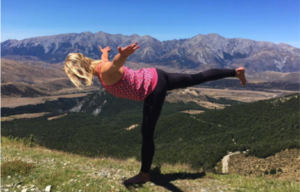CUMBERLAND PHYSIOTHERAPY PARRAMATTA: Can prolonged stress affect your pain and healing? There’s a strong suggestion that it can, particularly with chronic pain. If you suffer from ongoing pain you may even have noticed this relationship yourself. Many people know that their pain is worse when they are stressed but they don’t know why.
Stress activates your sympathetic nervous system, this is the state where we move into ‘Fight, Flight or Freeze’ mode. this part of our nervous system is responsible for keeping us safe when we are in danger, however, it can be activated for prolonged periods in modern life and many of us lack skills to return control to our parasympathetic nervous system, which is responsible for helping us to rest and digest.
How would this affect pain?
During this state, muscles become tensed and ready for action, the nervous system is extra sensitive to stimulus, blood pressure is raised and we are more likely to notice and have negative thoughts. Tense muscles can become tired and painful or put extra stress on other structures, causing pain and irritation. Quite often when in a stressed state, our breathing becomes shallow and rapid, particularly when doing work of low exertion, such as while sitting in an office.
Use your breathing to recover.
One way to help your body return control to the parasympathetic nervous system is to consciously change your breathing. One method is to hold your breath for as long as you can, once you relieve your breath your body senses that a threat has passed and can return to a relaxed state.
Another commonly used technique is box breathing. To do this, breathe in for four seconds, hold for four, breathe out for four, hold again for four and repeat. Do this for a few minutes until you start to feel more relaxed and calm.
Show your body that you are safe.
Other activities that can help your body to relax include yoga, going for a swim or having a shower, or doing some intense exercise where your heart rate is raised.
Speak to your physiotherapist for more information on this topic and tips to help you relax during the day. None of the information in this article is a replacement for proper medical advice. Always see a medical professional for advice on your individual injury.

